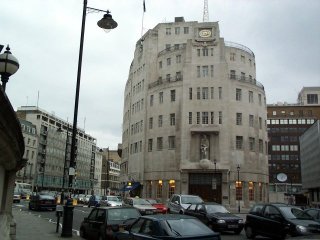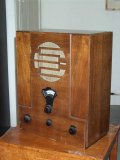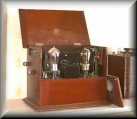Essay writing - general advice for a radio essay
As a student, you will have received essay advice. Here is specific about radio drama.
PITFALLS
| Only use illustrations from radio plays that you have heard, yourself. You will read of other plays in, for example, Lewis, Peter, ed., 1981, Radio Drama. You have to find your own examples to illustrate techniques you wish to talk about. As a teacher, marking essays, I do have strong feelings on this issue. I need my students to do the needed research and listening. There are so many plays available on the BBC site, it is not unfair to require this. |
| 'The Archers' provides a shared source of reference that many will understand. You will find good illustrations there, for example, of Signposting - further definition & Description or added words in the dialogue to fill in what is 'blind' for the listener. |
| There are interesting controversies and I have tried to highlight some of them here - Essay - some specific issues |
Ages of radio drama in the BBC - as technology
1922 (first experiments) to March 1932 = production mostly in Savoy Hill (first main BBC studios and building); Val Gielgud takes over as Director of Drama in December 1928.
March 1932 (move into BBC Broadcasting House Building with dedicated radio drama studios) to September 1939 (dispersal of radio drama out of London at beginning of WW2.
1939 to 1945 WW2 plays and radio drama during the war
1945 (end of war) to 1970 (first broadcasts in FM and in stereo) - includes RADIO DRAMA MODERNISM (Samuel Beckett, Dylan Thomas)
1970 to 2003 (age of FM stereo)
2003 onwards - digital radio, BBC web sites
| Always give the dates of your sources. Be aware of the different ages of radio drama. For example, Rodger, Ian, Radio Drama, 1982, London: Macmillan - this is nearly all before the arrival of FM stereo. So if you quote from this, you must give a warning, and point out the date and the context. Do not just apply pre-stereo and pre-digital comments to today's radio drama. The conventions about atmos and about dialogue in a neutral atmos (pre-stereo) are so different. |

If for broadcast - you should probably respect BBC Editorial Guidelines

